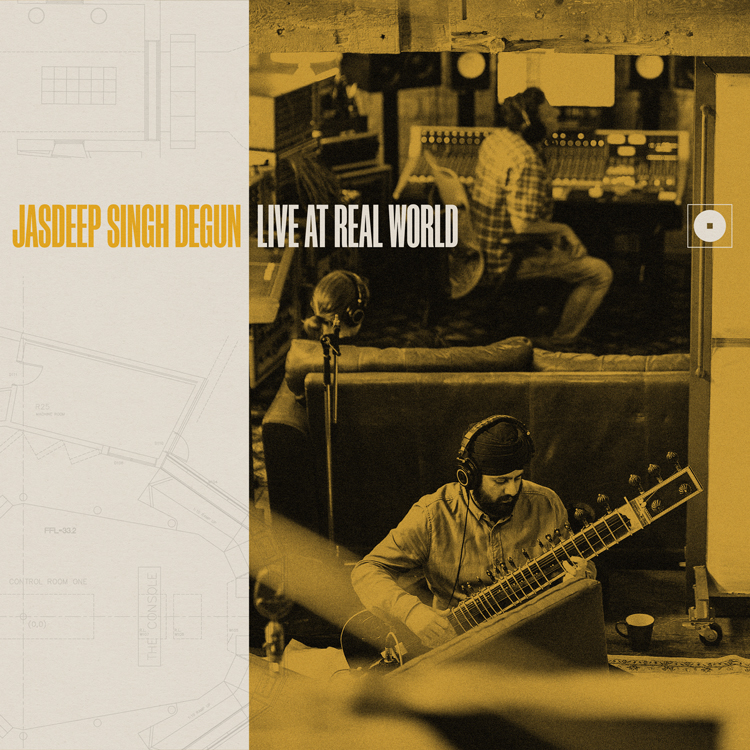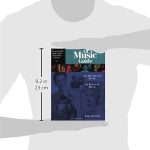Modern classical music is a genre that blends traditional classical elements with contemporary styles, creating innovative and experimental compositions that push the boundaries of traditional musical conventions. With its focus on creativity, emotion, and exploration, modern classical music offers a fresh and exciting approach to composition, appealing to both classical music enthusiasts and those who are open to new and unique musical experiences.
We will delve deeper into the world of modern classical music, discussing its origins, characteristics, and notable composers and works that have left a significant impact on the genre. Explore the evolution of classical music and discover how modern classical composers have shaped the sound of this genre today.

Credit: worldmusiccentral.org
The Evolution Of Classical Music
Classical music has a rich history that spans several centuries. From its origins in the medieval period to the present day, this genre has evolved and transformed, embracing new influences and styles along the way. In this section, we will explore the fascinating journey of classical music, discussing its early developments and how it has adapted over time.
Explore The Origins And Early Developments Of Classical Music
- In the medieval period (500-1400), chants and sacred music dominated the musical landscape. The gregorian chant, named after pope gregory i, was one of the earliest forms of vocal music.
- The renaissance period (1400-1600) witnessed a flourishing of polyphonic music, characterized by intricate harmonies and multiple voices. Composers such as josquin des prez and giovanni pierluigi da palestrina contributed greatly to this era.
- The baroque period (1600-1750) introduced highly ornamental and elaborate compositions. Figures like johann sebastian bach and antonio vivaldi revolutionized classical music, creating masterpieces that are still revered today.
Discuss How Classical Music Has Evolved Over Time
- The classical period (1750-1820) marked a shift towards more balanced and symmetrical compositions. This era saw the rise of renowned composers like wolfgang amadeus mozart and ludwig van beethoven.
- The romantic period (1820-1910) brought forth emotional depth and expressive freedom in classical music. Composers such as frederic chopin and pyotr ilyich tchaikovsky pushed the boundaries of traditional forms, resulting in passionate and evocative compositions.
- The 20th century witnessed a multitude of diverse styles and influences in classical music. From the experimental atonality of arnold schoenberg to the minimalist compositions of steve reich, innovation and exploration became prominent features.
Incorporating Various Influences And Styles
- Classical music has been influenced by various cultural and geographical factors. Folk music, jazz, and even world music have made their way into classical compositions, adding unique flavors and dimensions.
- Technological advancements have also played a significant role in the evolution of classical music. The invention of new instruments and recording techniques has expanded the possibilities for composers and performers.
- Contemporary classical music continues to embrace a wide range of styles and influences. Composers like john adams and philip glass have incorporated elements of popular music and electronica into their works, bridging the gap between classical and modern genres.
Classical music has evolved and grown throughout history, adapting to societal changes, embracing new styles, and incorporating various influences. From its humble beginnings to the present day, this genre continues to inspire and captivate audiences with its timeless beauty and innovation.
The Modern Classical Music Movement
Contemporary classical music, also known as modern classical music, is an evolving genre that brings together traditional elements and contemporary techniques. In this section, we will explore the key aspects of the modern classical music movement and how composers are pushing the boundaries of this art form.
Provide An Overview Of The Modern Classical Music Movement
- Modern classical music represents a shift in the traditional perception of classical music, embracing experimentation and innovation.
- Composers in the modern classical music movement draw inspiration from a wide range of sources, including folk music, jazz, and world music.
- The movement challenges the conventional notions of harmony, melody, and structure, resulting in a diverse and eclectic range of compositions.
- Technology plays a significant role in modern classical music, allowing composers to explore new sounds and expand the sonic palette.
Describe How Composers Are Combining Traditional Elements With Contemporary Techniques
- Composers are merging traditional elements, such as orchestral instrumentation and classical forms, with contemporary techniques like electronic music and avant-garde experimentation.
- By fusing genres and incorporating non-classical instruments, composers create a synthesis of old and new, providing a fresh perspective on classical music.
- The use of extended techniques, unconventional notation, and improvisation allows composers to break free from the constraints of traditional classical music and explore new avenues of artistic expression.
- Collaboration with musicians from different genres, such as rock or hip-hop, introduces new textures and influences, resulting in a hybridized approach to composition.
The modern classical music movement represents a departure from the traditional canon while incorporating innovative techniques and embracing diverse influences. Composers are pushing boundaries, experimenting with new sounds, and collaborating across genres to create a thriving and dynamic art form.
The Role Of Innovation In Modern Classical Music
Discuss The Importance Of Innovation In Modern Classical Music
Innovation plays a vital role in shaping modern classical music. Composers strive to push boundaries and experiment with new sounds and structures, bringing fresh perspectives to this traditional genre. By embracing innovation, they revitalize classical music, making it relevant and captivating for contemporary audiences.
Here are some key points to consider:
- Embracing new technologies: Composers are leveraging advancements in technology to explore unheard sounds and expand the possibilities of classical music. From electronic instruments to computer-generated compositions, technology opens up a new realm of creativity.
- Fusion of musical styles: Classical composers are not limited to the conventions of the past, as they boldly fuse classical elements with other genres like jazz, rock, and world music. This amalgamation creates a vibrant and dynamic musical landscape, captivating listeners from diverse backgrounds.
- Experimentation with unconventional instruments: Composers are constantly seeking new ways to create captivating music by incorporating unconventional instruments into their compositions. By introducing exotic instruments or repurposing traditional ones, they infuse classical music with novel textures and tones.
- New approaches to composition: Contemporary composers are breaking away from the traditional structures and tonalities that defined classical music for centuries. They experiment with unconventional forms, explore microtonal scales, and incorporate improvisation, allowing for a more contemporary and expressive musical language.
- Collaboration across disciplines: Composers are increasingly collaborating with artists from other disciplines, such as visual artists, choreographers, and filmmakers. This interdisciplinary approach enriches classical music with new layers of meaning and creates immersive experiences for audiences.
- Cultural inclusivity: Modern classical composers embrace diversity and multiculturalism, drawing inspiration from various musical traditions and cultural identities. This inclusion ensures that classical music reflects the richness and complexity of our global society.
- Audience engagement: Innovation in modern classical music extends beyond the composition process. Composers are exploring interactive performances, multimedia presentations, and incorporating audience participation to create a more engaging and immersive experience for listeners.
- Challenging musical conventions: By questioning and challenging long-standing musical conventions, composers urge listeners to reevaluate preconceived notions of classical music. They strive to make classical music accessible and relevant to contemporary society, attracting new audiences and revitalizing the genre.
Innovation is paramount in modern classical music as composers push boundaries, experiment with new sounds and structures, and continuously challenge conventions. It breathes new life into the genre, ensuring its relevance and resonance with a diverse and ever-evolving audience. By embracing innovation, classical music secures its place in the cultural landscape and paves the way for endless exploration and creativity.
Traditional Elements In Modern Classical Music
In the world of music, classical compositions have withstood the test of time, captivating audiences for centuries with their complex harmonies and intricate melodies. However, as time goes by, musical styles evolve, and the realm of classical music is no exception.
Modern classical music, while venturing into new territories, maintains certain elements that pay homage to its traditional roots. In this section of our blog post, we will explore the ways in which modern classical music holds on to its traditional elements.
Examine The Ways In Which Modern Classical Music Maintains Traditional Elements
Modern classical music, though innovative and avant-garde, manages to retain traditional aspects that have defined the genre for generations. Here are some key points to consider:
- Classical instruments: One of the ways modern composers keep tradition alive is by utilizing classical instruments in their compositions. Instruments such as the violin, piano, cello, and flute continue to be prominent in modern classical music, adding a touch of familiarity and elegance to contemporary compositions.
- Traditional techniques: Despite pushing boundaries, modern classical music often incorporates traditional compositional techniques. Composers may draw inspiration from classical forms like sonatas, fugues, and concertos, using these structures as frameworks for their innovative compositions. This fusion of traditional techniques with groundbreaking ideas creates a captivating blend of old and new.
- Embracing tonality: While modern music occasionally delves into atonality and experimental harmonies, many modern classical compositions still embrace tonality. By utilizing traditional tonal systems and scales, composers create music that is accessible to a wider audience, enabling classical music to remain relevant in today’s diverse musical landscape.
- Melodic and thematic development: A key aspect of classical music is its focus on melodic and thematic development. Modern composers continue to explore and expand upon this tradition by creating intricate melodies and developing musical themes throughout their compositions. This attention to melodic and thematic intricacies connects modern compositions to their traditional predecessors.
- Classical influence: Modern classical music often incorporates influences from iconic composers of the past, paying tribute to their contributions and honoring their legacy. Whether it is through referencing specific motifs or employing similar orchestration techniques, these nods to classical masters help bridge the gap between the old and the new.
By combining classical instruments, traditional techniques, tonality, melodic development, and classical influences, modern classical music maintains its connection to the past while embracing the future. This unique blend of tradition and innovation ensures that classical music continues to captivate audiences and remains a rich and relevant art form in the modern era.
Innovations In Modern Classical Music
Modern classical music is a genre that embraces innovation and pushes the boundaries of traditional composition. Modern composers are constantly exploring new approaches and techniques to create unique and captivating musical experiences. In this section, we will highlight some of the innovative approaches and techniques used by modern composers in their compositions.
Highlight Innovative Approaches And Techniques Used By Modern Composers
- Fusion of genres: Modern classical composers are known for blending elements from different genres such as jazz, rock, and electronic music. This fusion results in refreshing and eclectic compositions that appeal to a wider audience.
- Minimalism: One of the significant innovations in modern classical music is the minimalist approach. Composers like steve reich and philip glass have adopted repetitive patterns and simple harmonies to create mesmerizing and meditative compositions.
- Extended techniques: Modern composers experiment with unconventional playing techniques, pushing the boundaries of traditional instruments. These extended techniques involve new ways of producing sound, such as plucking the strings of a piano or using a bow on a guitar.
- Aleatoric music: Also known as chance music, aleatoric compositions incorporate an element of randomness. Composers like john cage introduced this technique, where certain aspects of the music are left to chance, creating unpredictable and unexpected sonic outcomes.
- Microtonality: Traditional classical music is based on a system of twelve equally spaced notes. However, modern composers explore microtonal scales, which utilize intervals smaller than a semitone. This exploration of microtonality adds a unique and dissonant quality to the compositions.
Discuss The Use Of Electronic Elements And Unconventional Instrumentation
- Electronic elements: Modern classical composers often incorporate electronic elements into their compositions. By combining acoustic instruments with synthesized sounds, composers can create a wide variety of textures and timbres. This integration of electronics adds a modern and futuristic dimension to classical music.
- Unconventional instrumentation: Another innovation in modern classical music is the use of unconventional instruments. Composers may choose to incorporate non-traditional instruments like found objects, modified instruments, or even everyday items into their compositions. This experimentation with unconventional instrumentation brings a fresh and unconventional sound to the genre.
Modern classical music is a rich and ever-evolving genre that thrives on innovation and experimentation. Composers continually explore new approaches and techniques, fusing genres, utilizing extended techniques, adopting minimalist approaches, and embracing electronic elements and unconventional instrumentation. These innovative practices allow classical music to remain relevant and captivating in our modern world.
The Impact Of Modern Classical Music
Modern classical music has left an indelible mark on the music landscape, with its unique blend of traditional classical elements and contemporary influences. This subgenre of classical music has made significant contributions to various other genres and continues to shape the contemporary music scene.
In this section, we will explore the impact of modern classical music and its influence on other genres.
Explore The Influence Of Modern Classical Music On Other Genres
- The fusion of classical and electronic music: Modern classical composers have embraced electronic elements, incorporating them into their works to create a dynamic fusion of classical and electronic soundscapes. This infusion has paved the way for the emergence of genres like electronic classical and neo-classical, captivating a wider audience.
- Pop music incorporating classical elements: Modern classical music has inspired many pop artists to incorporate classical instruments, harmonies, and compositional techniques into their music. This infusion adds depth and richness to pop songs, creating a unique and sophisticated listening experience.
- Film scores and soundtracks: The influence of modern classical compositions on film scores cannot be underestimated. Many contemporary film composers draw inspiration from modern classical music to create emotionally evocative and atmospheric soundtracks that enhance the cinematic experience.
- Minimalism influencing ambient and experimental music: The minimalist movement within modern classical music has had a profound impact on ambient and experimental music genres. The repetitive patterns and subtle variations characteristic of minimalism have influenced the creation of meditative, introspective, and atmospheric compositions.
Discuss The Reception And Appreciation Of Modern Classical Music In Contemporary Society
- Growing popularity and accessibility: Modern classical music has seen a surge in popularity in recent years, as more people discover its unique characteristics and emotive qualities. Digital platforms and streaming services have also made it easier for listeners to access and explore this genre.
- Cultivating new audiences: Modern classical music has successfully expanded its audience beyond traditional classical enthusiasts. Its incorporation of contemporary elements and collaborations with artists from other genres have attracted a younger and more diverse audience, contributing to its continued relevance in contemporary society.
- Challenging traditional notions of classical music: Modern classical compositions often push boundaries and challenge traditional notions of classical music. This willingness to experiment and explore new sonic territories has garnered appreciation from those seeking innovative and boundary-pushing musical experiences.
- Critical acclaim and recognition: Modern classical musicians have received critical acclaim and recognition for their contributions to the genre. Awards such as the grammy awards and prestigious festivals dedicated to modern classical music highlight the growing appreciation and importance of this genre in contemporary society.
Modern classical music continues to evolve and captivate audiences worldwide, blurring the lines between classical and contemporary music. Its influence on other genres and its reception in contemporary society showcase its enduring impact and relevance in the ever-changing music landscape.
Notable Modern Classical Composers
Modern classical music is a fascinating genre that combines the timeless beauty of classical compositions with innovative and contemporary elements. The evolution of classical music has given rise to a new wave of talented composers who have made significant contributions to the genre.
In this section, we will explore some notable modern classical composers and discuss their unique styles and influential works that have shaped the landscape of contemporary classical music.
Provide A List Of Influential Modern Classical Composers
- Philip glass: Known for his minimalist approach, philip glass is one of the most influential modern classical composers. His repetitive melodies and evolving rhythmic patterns have captivated audiences around the world. Notable works include “koyaanisqatsi” and “einstein on the beach.”
- John adams: John adams is renowned for his eclectic style, blending elements of minimalism, tonality, and jazz. His compositions often tackle political and social issues, making them both thought-provoking and emotionally compelling. Notable works include “nixon in china” and “on the transmigration of souls.”
- Arvo pärt: Arvo pärt’s unique style of composition is often described as tintinnabuli, characterized by simple melodies and harmonies that create a mystical and meditative atmosphere. His works, such as “spiegel im spiegel” and “tabula rasa,” have a profound emotional depth that resonates with listeners.
- Steve reich: Steve reich’s compositions are known for their rhythmic complexity and repetitive patterns. His pioneering work in minimalism has had a significant impact on modern classical music. Notable works include “music for 18 musicians” and “different trains.”
- Sofia gubaidulina: Sofia gubaidulina is a russian composer known for her experimental and spiritually inspired compositions. Her works often incorporate unconventional instruments and explore themes of faith and spirituality. Notable works include “offertorium” and “in tempus praesens.”
- Thomas adès: Thomas adès is a versatile composer who has made notable contributions to contemporary classical music. His compositions are characterized by intricate harmonies, contrasting textures, and a wide range of emotional expressions. Notable works include “asyla” and “the tempest.”
- Kaija saariaho: Kaija saariaho is a finnish composer known for her innovative use of electronic sounds and rich musical textures. Her compositions often explore themes of nature, spirituality, and human emotions. Notable works include “l’amour de loin” and “graal théâtre.”
- Einojuhani rautavaara: Einojuhani rautavaara’s compositions encompass a wide array of styles, from mystical and atmospheric to avant-garde and experimental. His works often incorporate elements of fantasy and folklore. Notable works include “cantus arcticus” and “symphony no. 7, angel of light.”
- Jennifer higdon: Jennifer higdon is a prominent american composer known for her vibrant and accessible compositions that appeal to a wide range of audiences. Her works often blend traditional classical forms with contemporary influences. Notable works include “blue cathedral” and “violin concerto.”
- Magnus lindberg: Magnus lindberg is a finnish composer known for his innovative use of orchestration and extended instrumental techniques. His works are characterized by their energy, complexity, and rich sonic landscapes. Notable works include “kraft” and “clarinet concerto.”
Each of these composers has brought a fresh and distinctive voice to modern classical music, pushing the boundaries of traditional composition and captivating audiences with their innovative approaches. Whether through minimalism, tonality, experimentation, or a blend of various influences, these composers continue to shape and redefine the genre, leaving a lasting impact on the world of classical music.
Future Prospects For Modern Classical Music
Modern classical music has come a long way since its inception, pushing boundaries and challenging traditional notions of composition and performance. While often considered a niche genre, modern classical music has seen a surge in popularity in recent years, attracting a diverse and engaged audience.
As we look to the future, it is intriguing to speculate how this genre will continue to evolve and adapt to new trends and technologies. In this section, we will discuss the outlook for modern classical music in the future and explore its potential for growth and innovation.
Discuss The Outlook For Modern Classical Music In The Future
Modern classical music has the potential to thrive in the coming years, as it continues to captivate and inspire audiences across the globe. Here are some key points to consider:
- Fusion of genres: Modern classical music has been increasingly influenced by various genres, such as electronic, rock, jazz, and world music. This fusion of styles creates unique compositions and attracts a wider range of listeners.
- Accessibility: Technology has played a significant role in making modern classical music more accessible. Streaming platforms and social media have allowed composers and performers to reach a larger audience, breaking down barriers and introducing the genre to new listeners.
- Collaboration and experimentation: The future of modern classical music lies in collaboration and experimentation. Composers are exploring new ways of integrating technology into their compositions, incorporating elements like live coding and interactive visuals. These innovations push the boundaries of the genre and provide exciting possibilities for future growth.
- Education and awareness: With the rise of music education programs and initiatives, the future of modern classical music looks promising. Schools and organizations are dedicating resources to introduce students to the genre, fostering an appreciation for its complexity and creativity. This increased awareness will help to sustain and expand the audience base for modern classical music.
Explore How The Genre May Continue To Evolve And Adapt To New Trends And Technologies
Modern classical music has always been at the forefront of embracing innovative technologies and exploring new trends. Here are some aspects to consider regarding the future evolution of the genre:
- Integration of digital tools: As technology advances, modern classical music is embracing digital tools and software to enhance the composition and performance process. Virtual reality, augmented reality, and artificial intelligence present exciting opportunities for composers to create immersive and interactive experiences for listeners.
- Hybrid performances: Traditional classical music performances are often characterized by a formal setting in concert halls. However, modern classical music is increasingly blurring the lines between genres and experimenting with alternative performance venues and formats. We can expect more crossover collaborations with popular artists, interdisciplinary performances, and site-specific events that engage and captivate diverse audiences.
- Global influences: In an interconnected world, modern classical music will undeniably be influenced by a wide range of global musical traditions. Composers will continue to draw inspiration from various cultures, resulting in compositions that reflect a rich tapestry of global influences. This cross-pollination of ideas will contribute to the genre’s evolution and keep it relevant in the ever-changing music landscape.
- Environmental consciousness: With the growing concern for the environment, modern classical music has the potential to become an advocate for sustainability. Composers may explore themes related to nature, climate change, and environmental activism, using their music as a platform to raise awareness and ignite conversations about these pressing issues.
Looking ahead, the future prospects for modern classical music are bright. With the ongoing evolution and adaptation to new trends and technologies, this genre will continue to push boundaries, break barriers, and captivate audiences. Its ability to fuse genres, embrace digital tools, and global influences ensures that modern classical music remains a dynamic and vital force in the music world.
Frequently Asked Questions On Modern Classical Music
What Is Modern Classical Music?
Modern classical music is a genre that combines traditional classical music elements with contemporary compositional techniques. It often incorporates electronic and experimental sounds, pushing the boundaries of traditional classical music.
How Does Modern Classical Music Differ From Traditional Classical Music?
Modern classical music differs from traditional classical music in its experimentation with new sounds, structures, and performance techniques. It breaks away from the strict rules and conventions of traditional classical music, allowing for more creativity and innovation.
Who Are Some Influential Composers In Modern Classical Music?
Some influential composers in modern classical music include philip glass, steve reich, john adams, and arvo pärt. These composers have made significant contributions to the genre, pushing its boundaries and creating iconic works.
What Are The Characteristics Of Modern Classical Music?
Characteristics of modern classical music include the use of unconventional instruments, experimental harmonies and rhythms, dissonance, extended techniques, and an emphasis on individual expression and creativity. It often reflects the cultural, social, and political contexts of its time.
Why Is Modern Classical Music Important?
Modern classical music is important because it represents the evolution and progression of the classical music tradition. It allows for new ideas, perspectives, and artistic expressions to emerge, keeping the genre relevant and engaging for contemporary audiences.
How Can I Explore Modern Classical Music?
To explore modern classical music, you can start by listening to the works of influential composers mentioned earlier. You can also attend live performances, explore curated playlists, and follow blogs and websites dedicated to modern classical music. Experiment with different composers and styles to find what resonates with you.
Conclusion
Modern classical music holds a significant place in the evolving landscape of art and culture. Its fusion of traditional and contemporary elements has brought forth a new wave of expression and experimentation. Whether through minimalist compositions or intricate orchestrations, this genre continues to captivate listeners with its ability to evoke emotions and push boundaries.
With the advent of technology, composers have found innovative ways to connect with audiences, creating immersive experiences that blend music with visuals and interactive elements. Moreover, modern classical music has also expanded its reach through online platforms, enabling wider accessibility and attracting a diverse fan base.
As we move forward, it is exciting to witness the ever-evolving nature of this genre and the potential it holds for shaping the future of classical music. Embracing innovation while honoring tradition, modern classical music maintains its relevance in a rapidly changing world and continues to inspire listeners worldwide.












